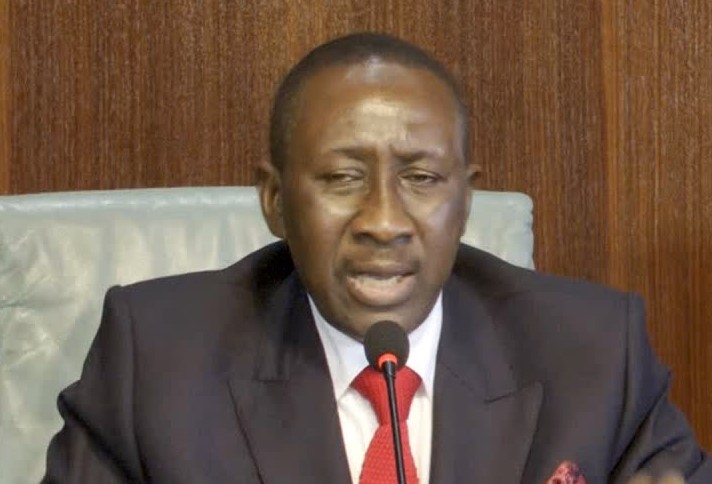The National Security Adviser (NSA), retired Maj.-Gen. Babagana Monguno, says the Federal Government is leveraging soft power to complement counter-terrorism initiatives.
Monguno disclosed this on Thursday at the Presidential Villa, Abuja, while featuring in the 60th session of State House Briefing organised by the Presidential Communications Team.
He said there were policy frameworks and key establishments by the Federal Government to address insecurity in this country.
“President Muhammadu Buhari continues to provide strategic guidance in developing, coordinating and applying the instrument of national power to achieve the desired objective spelt out in our national security strategy.
“Furthermore, we are leveraging soft power to complement other counter-terrorism initiatives as well as building trust and resilience at the community level.
“Against this backdrop, various policy documents were developed and strategic institutions established to lay the groundwork for coordination to deal with security challenges in our country.’’
The national security adviser outlined some of the policy efforts by the Federal Government to tackle insecurity, which include the enactment of the Terrorism Prevention and Prohibition Act of 2022.
According to him, the act is one of the key success stories in the fight against terrorism and violent extremism.
“This act repeals the Terrorism Prevention Act No 10 of 2011 as amended in 2013 and enacts provision for the detention, prevention, combating and prohibition of acts of terrorism.
`This act provides for the establishment of a National Counter-Terrorism Centre (NCTC) for better coordination of counter-terrorism efforts.
“Consequently, investigations are now better coordinated within the legal window of detention which has resulted in increased convictions.
“This act also encapsulates best global standards and practices relating to counter-terrorism.’’
Monguno said the policy framework and national action plan for Preventing and Countering Violent Extremism (PVCE) was part of national efforts at addressing violent extremism.
“This document articulates the roles to ensure seamless interaction between ministries, departments and agencies of government as well the larger society and non-governmental organisations among others.”
He said that the PCVE key components include strengthening institutions and coordination, strengthening access to justice, rule of law and human rights, engaging communities and building resilience as well as integrating strategic communication.
Monguno said that efforts were being made towards deradicalisation, rehabilitation and reintegration of repentant terrorists.
According to him, the Federal Government currently operates a number of deradicalisation programmes to support the PCVE efforts.
He said that, notably, operation `Fine Corridor’ was designed to encourage willing and repentant Boko Haram terrorists to surrender and embrace peace.
“This initiative is aimed at facilitating easy access and passage for surrendering Boko Haram terrorists to security forces for subsequent deradicalisation, rehabilitation and reintegration process.
“It is pertinent to state that the Borno State Government is currently having a permanent holding facility in Jere Local Government Area as part of the stablisation phase in the ongoing counter-terrorism and counter-insurgency operations.
“Other initiatives include, `Yellow Ribbon’ which supports women and children of terrorists by providing psychological therapy and reintegration programmes.
“Of course, we know, they are the most vulnerable in our society,’’ he said.









